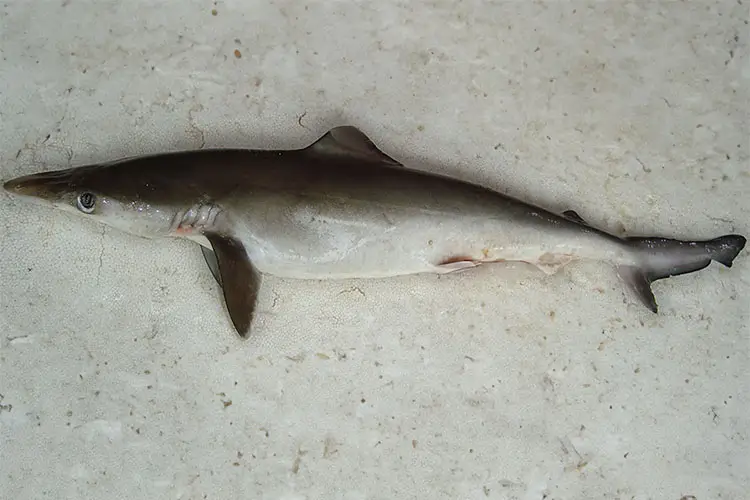
Sharks off the coast of Brazil have tested positive for cocaine, according to a study published in Science of the Total Environment by marine biologists from the Instituto Oswaldo Cruz (IOC), based in Rio de Janeiro.
The discovery was made when the scientists collected samples from 13 Brazilian sharpnose sharks (Rhizoprionodon lalandii) that had been landed by local fishing vessels.
A relatively small shark reaching a maximum of just 77cm in length, the Brazilian sharpnose shark is a coastal dwelling species, making it an ideal candidate to be tested for the presence of chemicals in the water.
The sharks were dissected and their muscle and liver tissues were tested using a process known as liquid chromatography-tandem mass spectrometry, an analytical system used to separate and detect specific chemical compounds within a sample.
All of the sharks tested positive for cocaine and 12 tested positive for benzoylecgonine, a chemical produced in the liver during the metabolism of cocaine, meaning that the sharks had consumed the drug.
The study is reminiscent of the 2023 Discovery Channel documentary ‘Cocaine Sharks‘, which explored if sharks off the coast of Florida had been affected by eating bales of drugs dumped into the water by smugglers. The documentary only showcased erratic behaviour as a possible result of cocaine consumption, however, and no sharks were tested for the presence of the drug.
The authors of the new study say this is a possibility in the sharks they tested, but an unlikely one, as bales of dumped narcotics are not a regular occurrence in the waters off Brazil. The scientists believe it is more likely that the sharks have been exposed to cocaine in human urine and faeces found in sewage outflows, or drainage from illegal drug laboratories.
Whether or not the cocaine affected the shark’s behaviour or health was not determined by the study, however, previous research in the Bay of Santos in São Paulo found that it is toxic to mussels, oysters and eels.
Concerns have also been raised that the drug may affect sharks’ eyesight, affecting their ability to hunt; and also contaminate the yolk of their eggs and inhibit reproduction.
Although there is no definitive proof it makes sharks more aggressive, given this is a well-known effect of cocaine in humans and other animals, the report’s authors noted this is a possibility requiring further study.
Studies related to the presence of illicit narcotics in the water are limited, but increasingly show that drugs – both legal and illegal – are impacting marine life. A 2022 study by scientists from the University of Florida found a total of 58 different pharmaceuticals present in a sample of 93 fish, including blood pressure medications, antidepressants, antibiotics, pain relievers, antihistamines and opioids.
Related articles
- Conception liveaboard fire captain appeals manslaughter verdict - 5 December 2025
- New global dive-travel platform Scubago set to launch in 2026 - 3 December 2025
- DIVE’s Biggest Shots of 2025 - 1 December 2025


